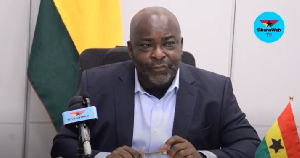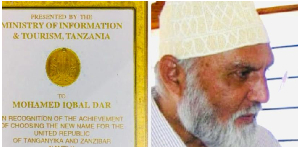The long awaited December 2015 demise of ‘dumsor’ is here and there is no inkling that the infamous phenomenon is coming to an end any moment from now neither can one be hopeful of any significant improvement in spite of the hyped arrival of the long awaited power barge. Promise and fail, a central theme battled in the spiritual realms in relation to failure to fulfil marital promises, has long evolved into a national concern as our leaders are very articulate in promising but lethargic in delivering.
In contrast to a saying by Lou Holtz – “don't ever promise more than you can deliver, but always deliver more than you promise” our leaders are at best doing otherwise. I am not oblivious to the developmental challenges we face as a developing country. However, it is worrying the manner in which promises are made and flouted without recourse to remorse or apology. Promises and the assurance of a solution to the perennial power crisis though, it stretches across the country’s various political regimes, has currently become a major concern. As part of the assurances to end dumsor, the current President prophesied the banishment of ‘dumsor’ in 2015 during the 31st December, 2014 vigil. Afterwards, he emphatically stated on the floor of parliament “I won’t manage ‘dumsor’; I will fix it” and proceeded to give an elaborate plan of projects and respective quantum of power generation that sounded like a concrete roadmap to the end of the crisis. The President also created the Power Ministry and gave the minister in charge an ultimatum to solve the problem or get booted out. In further assurance of results, the Power Minister, Dr. Kwabena Donkor, unequivocally stated he was going to resign should the power crisis prevail beyond 2015. This deadline which was given a year ago was worrying to many considering the agony of enduring ‘dumsor’ for an additional one year. However, the long awaited date is here and the President has already shifted the goal post to end of 2016.
Now people are calling for the head of the Power Minister. He promised an outright resignation if he fails. However, as in employer – employee relationships - the employer needs to, as a responsibility, provide the employee with the needed resources in order to get the expected results. Can we say so in this case? Has the President given the Minister all the resources needed to this end? Or it is a collective failure? Unless one is a stranger in this country, one may be careful taking up certain responsibilities and quickly pledging results. So one may also wonder what kind of leverage was he given to execute this task or did he fail to appreciate the enormity of the task he was taking up in the first place?
All we have seen to date is talk without results. Considering the plethora of promises from the very people expected to be busy solving the problem one is often left wondering if the battle of dumsor is that of words or action? Multitude of words they say is often a recipe for disappointment – there is a saying that goes “when a man repeats a promise again and again, he means to fail you.” Perhaps we are better off suffering in silence than suffering amidst vain promises. One may say the reason why many promises are not kept is the same as the reasons they are made in the first place. So if promises are made whimsically without a plan for execution these outcomes are expected.
So will the President in this scenario have the boldness to sack the Minister or will he accept joint responsibility and resign with him since they seem to be in the fight together? Hindsight when the Power Minister said he was going to resign if he fails, some of us were of the view that his resignation alone will not be enough and that his employer, the President should follow suit. But what can we expect now that the President has gone ahead to extend the deadline?
Surprisingly, the President and his Minister are now making a case for increased tariff adjustment as a way of solving the ‘dumsor’ crisis. What a flagrant insincerity? On what basis, then, was the December 2015 deadline given? What the government should be busily doing is delivering on its promises and then they can make a case for such an increment. Certainly the increasing component of thermal power generation calls for paying realistic prices to cover the high cost associated with it. However, knowing that the government and its agencies are the biggest debtors to ECG, one wonders if increasing electricity tariffs will not merely increase government indebtedness and deepen the woes of the sector?
The government should first come clear on what new they have in the offing to avert its indebtedness. It is also clear that the needed planning and investment, embracing new paradigms such as solar, policy actions for liberalization of the sector are lacking and without these no amount of talk will solve the problem. God help us and grant us wisdom and commitment to make Ghana a better place.
Emmanuel K. Mawuena
Freelance Writer
Accra
Opinions of Wednesday, 2 December 2015
Columnist: Mawuena, Emmanuel K.


















